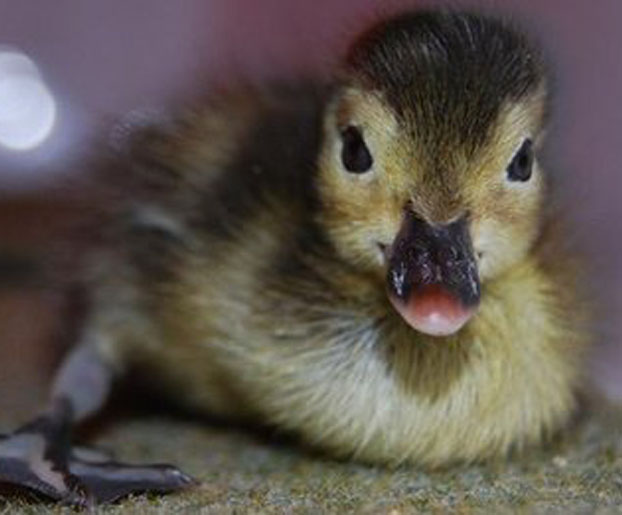
Earth's Rarest Ducklings Quackin' Cute

Get the world’s most fascinating discoveries delivered straight to your inbox.
You are now subscribed
Your newsletter sign-up was successful
Want to add more newsletters?

Delivered Daily
Daily Newsletter
Sign up for the latest discoveries, groundbreaking research and fascinating breakthroughs that impact you and the wider world direct to your inbox.

Once a week
Life's Little Mysteries
Feed your curiosity with an exclusive mystery every week, solved with science and delivered direct to your inbox before it's seen anywhere else.

Once a week
How It Works
Sign up to our free science & technology newsletter for your weekly fix of fascinating articles, quick quizzes, amazing images, and more

Delivered daily
Space.com Newsletter
Breaking space news, the latest updates on rocket launches, skywatching events and more!

Once a month
Watch This Space
Sign up to our monthly entertainment newsletter to keep up with all our coverage of the latest sci-fi and space movies, tv shows, games and books.

Once a week
Night Sky This Week
Discover this week's must-see night sky events, moon phases, and stunning astrophotos. Sign up for our skywatching newsletter and explore the universe with us!
Join the club
Get full access to premium articles, exclusive features and a growing list of member rewards.
Eighteen Madagascan pochards—the rarest duck on the planet—are exuding cuteness in a captive breeding center in Antsohihy, Madagascar. These adorable ducklings represent nearly a third of the entire population of their critically endangered species, signaling new hope that these birds can be saved from extinction.
PHOTOS: Madagascar Home to 615 Newly Discovered Species
Madagascan pochards were thought to be extinct until explorers rediscovered 22 of them nesting at a small, forested lake in northern Madagascar in 2006. By July 2009 only six females remained. That’s when conservationists, in cooperation with the Malagasy government, opted to launch an emergency captive breeding program.
In an urgent twist on the Easter egg hunt, conservationists carefully removed 24 eggs from their nests and hatched them in incubators along the lakeshore and hotel bathrooms until the breeding facility could be built.
ANALYSIS: Labrador Retriever Adopts Duckling
The new ducklings are the offspring of the now-two-year-old birds hatched from those extracted eggs. The plan is to train this new brood for life in the wild and to release them sometime in the future—if and when their caretakers can find a suitable habitat.
The lake where the lone population of wild birds still lives was once part of a system of wetlands throughout the Island’s central plateau, including many shallow lakes and extensive marshes. But a long history of lake drainage and the introduction of exotic fish has reduced the suitability of these wetlands for many birds, explains Glyn Young of the Durrell Wildlife Conservation Trust, one of several organizations that facilitates the captive breeding program.
Get the world’s most fascinating discoveries delivered straight to your inbox.
Andy Bamford with the Wildfowl and Wetlands Trust, another partner in the project, spent several months in Madagascar with the ducks last year. He says the birds are surviving on this lake because it’s so remote, but it probably can’t support many more of them.
“Our initial investigations suggest there is too little food,” Bamford explains. “Few ducklings are surviving beyond a couple of weeks, and I suspect that they simply don’t have the strength to dive as deep or for as long as the adult birds in order to get to the invertebrates at the bottom of the lake. They are literally starving to death.”
That the birds breed successfully in captivity may be their greatest hope for survival. That, we can hope, will give conservationists time to locate more suitable lakes where these and future hatchlings can make their way in the wild.
This article was provided by Discovery News.
 Live Science Plus
Live Science Plus










